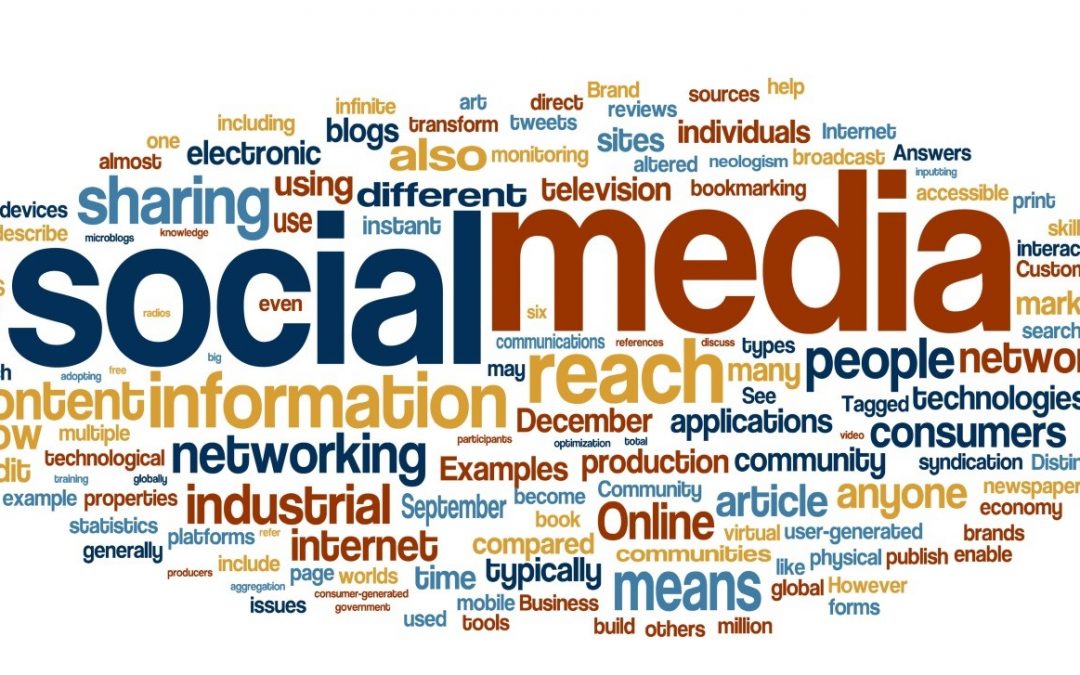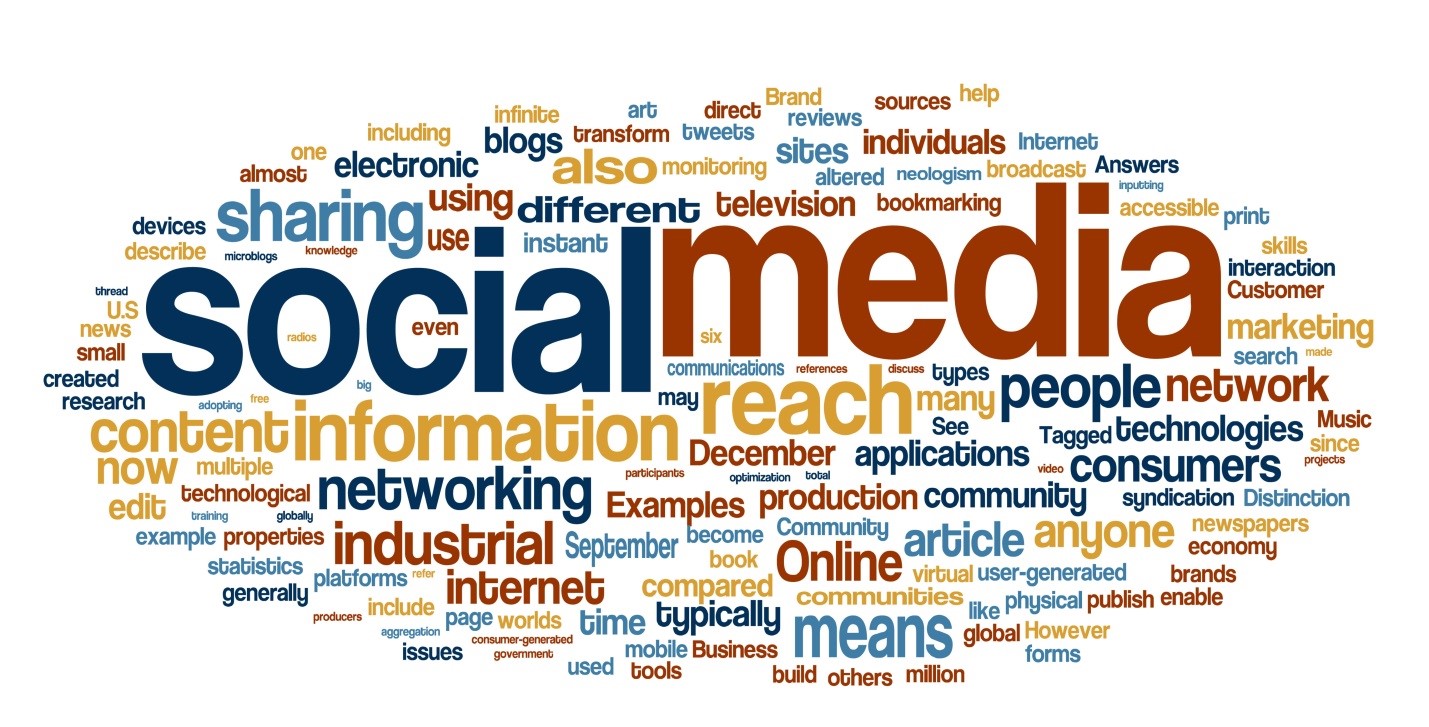
by Fronetics | May 2, 2016 | Blog, Content Marketing, Marketing, Social Media, Strategy, Supply Chain

Image credit: startbloggingonline.com
Here are three of the top benefits of social media for businesses in the supply chain and logistics industries.
We know that the majority of businesses participate in social media — in fact, a dominant 88% of B2B marketers report using these platforms as part of their marketing programs. Large corporations, small businesses, and those in between are promoting their brand and engaging with customers online. Even companies within the logistics and supply chain industries are joining the bandwagon and reaping the benefits of social media marketing.
The truth is, if your company is not participating in social media, you are at a disadvantage. Your customers, your employees, and your competitors are taking advantage of these technologies to conduct business in new, more efficient ways.
Why are so many companies using these tools?
Here are just three of the top benefits of social media for business:
1) Communicate and engage
By participating in social media, your business has at its fingertips a highly efficient, sophisticated platform for engaging customers, employees, potential hires, industry peers, and the general public. You can announce a new product launch; share small or sweeping changes in service, supplies, practices, locations, etc.; respond to questions or complaints; weigh in on industry discussions happening on online forums; and celebrate employee milestones and accomplishments.
2) Generate and nurture leads
Social prospecting is the process of using social technologies to identify and pursue potential customers that may be interested in your company but that don’t yet know about it. Your business can prospect from the 2.3 billion worldwide social media users, engage them with relevant content, and form and build relationships that you otherwise would have never encountered were it not for the World Wide Web.
3) Reduce marketing expenses
It’s free to set up social media accounts for your business. The real cost comes with dedicating resources to maintain and monitor the content on each channel, and those needs will vary from business to business. Even if you do chose to upgrade and pay for premium benefits and services, like ads, the cost is significantly lower than using many traditional mediums. One recent study suggests that the cost per thousand impressions (CPM) could be as low as $2.50, while traditional tactics, like direct mail ($57 CPM) and TV ads ($28 CPM), remain significantly higher.
Learn more about social media for business in Fronetics’ new white paper, Social Media and the Logistics and Supply Chain Industries. The paper defines social media and social technologies, identifies users and usage patterns, and describes more benefits companies within the logistics and supply chain industries can realize through participation.

Related posts:

by Fronetics | Apr 21, 2016 | Blog, Marketing, Social Media, Strategy, Supply Chain
Fronetics’ new report explores the adoption of social media within the logistics and supply chain industries. Learn why your company is at a disadvantage if you are not participating.
It is estimated that over $1 trillion annually could be realized across the value chain through the use of social technologies. Yet companies in the logistics and supply chain industries have lagged behind when it comes to social media participation. The question is: why?
In short, many companies within these industries did not realize that their customers, employees, and competitors were leveraging social media to conduct business. In today’s world, the exponential growth of social media platforms is largely fueled by commercial activity. Consumers and corporations alike are increasingly turning online to do research and make purchases. This holds true for both the B2C and B2B sectors. In fact, a dominant 88% of B2B marketers are using social media in their marketing programs.
Companies within the supply chain and logistics industries, however, have begun to recognize the value of social media — and are starting to reap the benefits. Both large and small businesses alike can profit from the use of social technologies as part of their marketing strategy, and they can reduce their marketing costs by doing so.
About the report
This report offers an overview of social media and social technologies. It identifies users and usage patterns, and describes some of the benefits which companies within the logistics and supply chain industries can realize through participation. Further It offers insight into how businesses are using social media and some strategies for measuring ROI.
Learn more about how your company can benefit by participating in social media by downloading the report below.

by Fronetics | Feb 4, 2014 | Blog, Logistics, Marketing, Social Media, Strategy
This article also appeared on DC Velocity.
Research conducted by Adrian Gonzalez, founder and president of Adelante SCM, found that 30 percent of respondents (supply chain professionals) reported that their companies block access to social media sites. One of the reasons for the lack of participation in social media by these companies is likely due to a lack of understanding of what social media is and the role it can play in business. As noted by Gonzalez: “many supply chain executives and companies are stuck on the starting line because they can’t get past the word ‘social’ and the perception it creates.”
In a 2013 article in MIT Sloan Management Review, Gerald C. Kane, Associate Professor at the Carroll School of Management at Boston College, wrote: “When asked to define social media, most people probably rely on something similar to Supreme Court Justice Potter Stewart’s definition of obscenity: ‘I know it when I see it.’” Unfortunately this approach to defining social media tends to perpetuate stereotypes and does not accurately reflect what social media is and how it can be utilized by business. What, then, is social media? Social media is defined by the Oxford English Dictionary as: “websites and applications that enable users to create and share content or to participate in social networking.” These websites and applications are inclusive of Twitter, Facebook, LinkedIn, and Google+. Social media is part of a larger framework called social technologies. The McKinsey Global Institute defines social technologies as: “IT products and services that enable the formation and operation of online communities, where participants have distributed access to content and distributed rights to create, add, and/or modify content.” Social technologies are inclusive of Yammer, Jive, Moxie, and Supply Chain Operating Networks such as Descartes, GT Nexus, Elemica, E2open, LeanLogistics, and One Network. Also included in social technologies are network-based business intelligence and analytics.
Clara Shih, CEO and Founder of Hearsay Social, and Lisa Shalett, Managing Director and Head of Brand Marketing and Digital Strategy at Goldman Sachs, call attention to the fact that when you get right down to it, social media encompasses “a set of new and innovative ways for businesses and customers to do what they have always done: build relationships, exchange information, read and write reviews, and leverage trusted networks of friends and experts.” Furthermore, engaging in social media and utilizing social technologies provides business with the tools to manage status, social networks, and established relationships—all drivers of firm performance. Social media and social networking also enable companies to be able to better manage risk, create demand, define their reputation, innovate, enhance business intelligence, and improve productivity.
To learn more about social media and the role it can play in business, see our white paper: Social Media and the Logistics and Supply Chain Industries: Why Not Participating is a Risk You Can’t Afford to Take.
by Fronetics | Feb 4, 2014 | Blog, Logistics, Marketing, Social Media, Strategy
This article also appeared on DC Velocity.
Research conducted by Adrian Gonzalez, founder and president of Adelante SCM, found that 30 percent of respondents (supply chain professionals) reported that their companies block access to social media sites. One of the reasons for the lack of participation in social media by these companies is likely due to a lack of understanding of what social media is and the role it can play in business. As noted by Gonzalez: “many supply chain executives and companies are stuck on the starting line because they can’t get past the word ‘social’ and the perception it creates.”
In a 2013 article in MIT Sloan Management Review, Gerald C. Kane, Associate Professor at the Carroll School of Management at Boston College, wrote: “When asked to define social media, most people probably rely on something similar to Supreme Court Justice Potter Stewart’s definition of obscenity: ‘I know it when I see it.’” Unfortunately this approach to defining social media tends to perpetuate stereotypes and does not accurately reflect what social media is and how it can be utilized by business. What, then, is social media? Social media is defined by the Oxford English Dictionary as: “websites and applications that enable users to create and share content or to participate in social networking.” These websites and applications are inclusive of Twitter, Facebook, LinkedIn, and Google+. Social media is part of a larger framework called social technologies. The McKinsey Global Institute defines social technologies as: “IT products and services that enable the formation and operation of online communities, where participants have distributed access to content and distributed rights to create, add, and/or modify content.” Social technologies are inclusive of Yammer, Jive, Moxie, and Supply Chain Operating Networks such as Descartes, GT Nexus, Elemica, E2open, LeanLogistics, and One Network. Also included in social technologies are network-based business intelligence and analytics.
Clara Shih, CEO and Founder of Hearsay Social, and Lisa Shalett, Managing Director and Head of Brand Marketing and Digital Strategy at Goldman Sachs, call attention to the fact that when you get right down to it, social media encompasses “a set of new and innovative ways for businesses and customers to do what they have always done: build relationships, exchange information, read and write reviews, and leverage trusted networks of friends and experts.” Furthermore, engaging in social media and utilizing social technologies provides business with the tools to manage status, social networks, and established relationships—all drivers of firm performance. Social media and social networking also enable companies to be able to better manage risk, create demand, define their reputation, innovate, enhance business intelligence, and improve productivity.
To learn more about social media and the role it can play in business, see our white paper: Social Media and the Logistics and Supply Chain Industries: Why Not Participating is a Risk You Can’t Afford to Take.

by Fronetics | Jan 28, 2014 | Blog, Logistics, Marketing, Social Media, Strategy, Supply Chain

Social media and social media technologies have rapidly changed the way companies do business across every type of industry. Social media brings businesses closer to their customers, provides a platform for communication and building thought leadership, and when executed properly it can help drive business and provide a significant return on investment. Businesses that ignore social media forgo these opportunities and miss out on potential business development opportunities.
According to The McKinsey Global Institute, 90 percent of companies who were using social media or social technologies for their business reported benefiting from their efforts in 2012. And how could they not? Utilizing a social media technology can increase a company’s reach into their industry and provides optimal channels for communicating with their customers.
The supply chain and logistics industries are two industries that have not adopted social media and social technologies as quickly as others. Business owners in these have a difficult time seeing past the “social” aspect of these technologies and understanding what the implied benefits of using social technologies can mean for their business. Many find themselves asking “why?” instead of “how?” when considering implementing a social media strategy, and ultimately allocate resources elsewhere within their businesses.
The Fronetics white paper, Social Media and the Logistics and Supply Chain Industries: Why Not Participating is a Risk You Can’t Afford to Take, provides meaningful insights into why supply chain and logistics companies need to be using social media and the value of these technologies. Learn how to move past the barriers to adoption, how to leverage social technologies, and learn what a social presence can mean for your business.
To learn more about why your business needs social media, download Social Media and the Logistics and Supply Chain Industries: Why Not Participating is a Risk You Can’t Afford to Take today.






